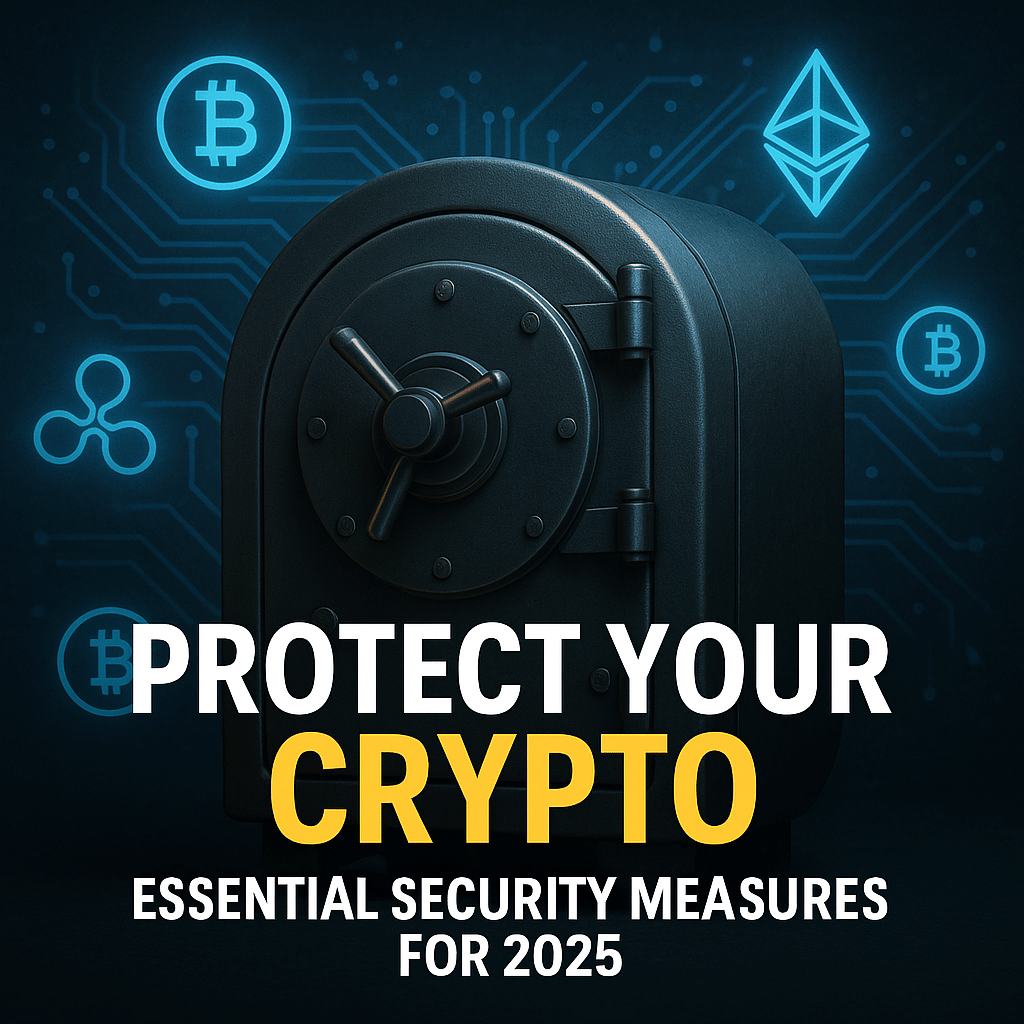In the rapidly evolving world of digital assets, ensuring the security of your cryptocurrency holdings is paramount. Adopting robust security measures is essential with increasing threats from cyberattacks, scams, and even physical coercion. This comprehensive guide outlines the best practices to safeguard your crypto assets in 2025.
Understanding the Importance of Crypto Security
Cryptocurrencies offer unparalleled control over one’s assets. However, this autonomy comes with the responsibility of securing your holdings. Unlike traditional banking systems, there’s no central authority to turn to in case of theft or loss. Therefore, proactive security measures are essential.
Best Practices for Securing Your Cryptocurrency
1. Utilize Cold Wallets for Storage
Cold wallets, such as hardware wallets, store your private keys offline, making them immune to online hacking attempts. Devices like Ledger and Trezor are popular choices among crypto enthusiasts. Keeping your assets offline significantly reduces the risk of cyber theft.
2. Implement Two-Factor Authentication (2FA)
Adding an extra layer of security through 2FA ensures that even if your password is compromised, unauthorized access is prevented. Due to their enhanced security, authenticator apps like Google Authenticator or Authy are recommended over SMS-based 2FA.
3. Use Strong, Unique Passwords
Avoid using easily guessable passwords or reusing passwords across multiple platforms. Employ a reputable password manager to generate and store complex passwords, ensuring each account has a unique credential.
4. Be Wary of Phishing Attempts
Phishing scams are prevalent in the crypto space. Always double-check URLs, avoid clicking on suspicious links, and never share your private keys or seed phrases. Remember, legitimate organizations will never ask for your sensitive information via email or direct messages.
5. Regularly Update Software and Firmware
Ensure that your wallets, devices, and any associated software are up-to-date. Developers frequently release updates to patch vulnerabilities and enhance security features.
6. Limit Exposure to Exchanges
While exchanges are convenient for trading, they are also prime targets for hackers. Keep only the amount necessary for trading on exchanges, and transfer the rest to your secure wallets.
7. Educate Yourself Continuously
The crypto landscape is dynamic, with new threats emerging regularly. Stay informed by following reputable crypto news outlets, participating in community forums, and attending webinars or workshops.
Frequently Asked Questions (FAQ)
Q1: What’s the difference between hot and cold wallets?
A hot wallet is connected to the internet, making transactions more convenient but susceptible to hacks. A cold wallet, on the other hand, is offline and offers enhanced security for long-term storage.
Q2: How often should I update my wallet software?
You should regularly check for updates and install them as soon as they’re available. Developers release updates to fix bugs and patch security vulnerabilities.
Q3: Is it safe to store my private keys on cloud storage?
Storing private keys on cloud platforms is not recommended due to potential breaches. Always store them offline in secure locations.
Q4: What should I do if I suspect my wallet has been compromised?
Immediately transfer your assets to a new secure wallet, change all associated passwords, and monitor your accounts for unauthorized activities.
Conclusion
Securing your cryptocurrency requires diligence, awareness, and the implementation of best practices. By taking proactive steps, you can protect your assets from potential threats and enjoy the benefits of the crypto world with peace of mind.

 Bitcoin
Bitcoin  Ethereum
Ethereum  Tether
Tether  XRP
XRP  USDC
USDC  JUSD
JUSD  TRON
TRON  Lido Staked Ether
Lido Staked Ether  Dogecoin
Dogecoin